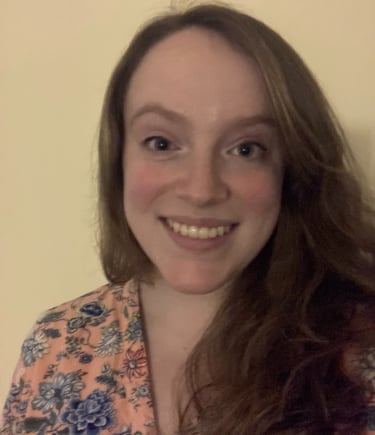I'm Mable,
a writer, artist, and educator. I work as an adjunct professor teaching undergraduate courses in English, creative writing, and communications.
In my free time, I write poetry, fiction, and creative nonfiction, create music and comedic puppet sketches, and work on academic projects. Originally from a rural town near the Baltimore, Maryland area (from whence great things tend to come--see Edgar Allan Poe, Billie Holiday, and Mr. Trash Wheel), I have previously worked as a journalist, editor, and middle school language arts teacher.
While the content and learners I teach now are different, I am still very passionate about fostering not just understanding of literature and rhetoric, but also critical thinking (what else is writing?), intentionality in communication (what else is revision?), and careful courage (how else can we have productive conversations?), as I believe these are crucial elements for participating in a scholarly and/or creative community.
I strive to grow continuously in developing a pedagogy that is uplifting, rigorous, creative, lively, culturally responsive, and engaged in relevant questions of critical interpretation that are in context, importantly, with students' lived experiences and current social realities.
For this reason, I'm currently particularly interested in posthumanism, the work of poet-essayists, alternative workshop models, gamification and creative expository writing assignments (to borrow from Felicia Rose Chavez, essaying "on and off the page"), arts integration, and learning technologies and AI.
I often return to this quote from scholar Donna J. Haraway's Staying with the Trouble: "It matters what matters we use to think other matters with; it matters what stories we tell to tell other stories with; it matters what knots knot knots, what thoughts think thoughts, what descriptions describe descriptions, what ties tie ties. It matters what stories make worlds, what worlds make stories.”
I like to think that if I approach the matter of my work with matters of equity and hope, I can present the stories in my syllabi through my students' own stories; that they can feel knotted in a mutually supportive community, think from an abundant growth mindset, and describe the world they long for in such a way that they become tied to others who long for it too; that effective pedagogy can help more world-changing stories get written.

